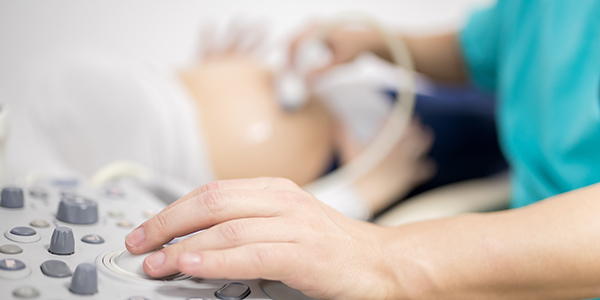Amniocentesis

Amniocentesis is a prenatal test that can give important information about your baby’s health. During the procedure, a small sample of amniotic fluid — the fluid that surrounds and protects your baby — is collected and analyzed.
The ideal time for amniocentesis is at 16 weeks of pregnancy but it can be performed up to 20 weeks. It’s often used to check for chromosome conditions, such as Down syndrome, as well as neural tube defects like spina bifida and certain genetic disorders, including sickle cell anemia.
How It's Done
Before the procedure, you’ll have an ultrasound to confirm your due date and locate the placenta and pockets of amniotic fluid. Using ultrasound guidance, your provider will insert a thin needle through your abdomen into the amniotic sac. A small amount of fluid is removed for testing. The process usually takes just a few minutes.
What It Feels Like
Some women say the procedure is slightly uncomfortable, while others compare it to having blood drawn. If you’d like, your provider can use a local anesthetic to numb the skin before inserting the needle. You might feel some cramping afterward, but most women are able to resume their usual activities the next day.
Possible Side Effects
After amniocentesis, you may notice mild cramping, a small amount of vaginal bleeding, or fluid leakage. These symptoms are usually temporary and go away without complications. Your provider will recommend that you:
- Avoid lifting more than 15 pounds for 24 hours
- Avoid sexual intercourse for 72 hours
- Avoid strenuous exercise for 72 hours
- Avoid air travel for 72 hours
Amniocentesis slightly increases the risk of miscarriage — fewer than 1 in 300 to 500 women experience this complication.
When to Call Your Doctor
Contact your provider right away if you have:
- Cramps, bleeding or leaking fluid that doesn’t stop or is getting worse
- A fever higher than 100.4°F (38°C)
What It Can Detect
Studying the cells in amniotic fluid can identify chromosome conditions such as Down syndrome. Measuring a protein called alpha fetoprotein (AFP) can detect most cases of neural tube defects. If your family has a history of certain genetic conditions, DNA or enzyme testing may be available.
While amniocentesis is highly accurate, no prenatal test can guarantee that a baby will be born without birth defects or genetic conditions.
Getting Your Results
Results for chromosome studies and AFP levels are usually ready within two weeks. Special tests may take longer. In rare cases, more ultrasound exams or blood tests may be needed. A repeat amniocentesis or fetal blood sampling is rarely required.
Discover Similar Stories
Choose a topic below to read more stories like this one.
Support at Every Step
From conception to delivery and after, our pregnancy and childbirth providers put you first.




